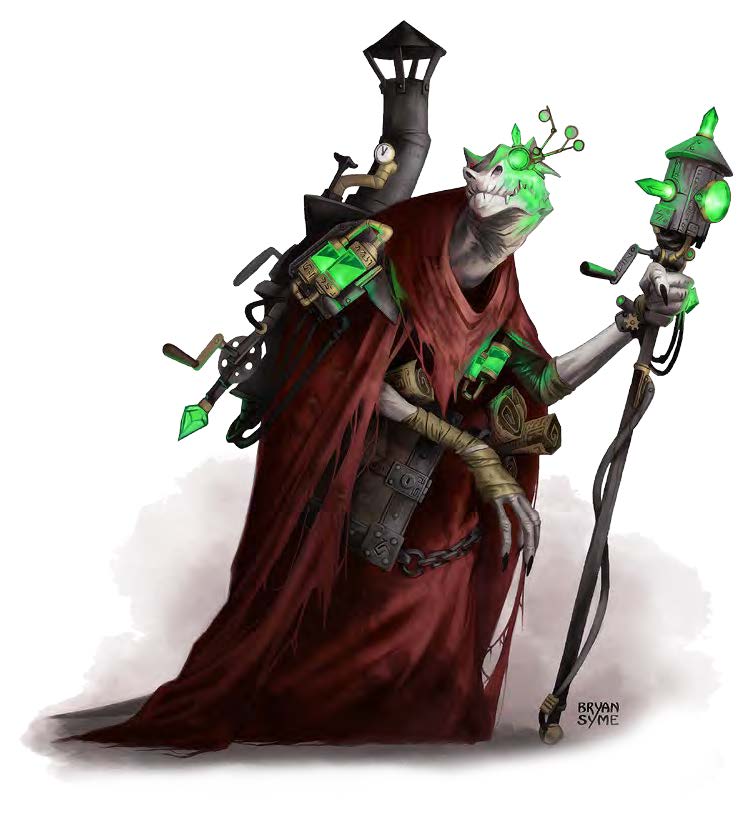 While consumables can have an effect on matters of balance in your campaign, let’s first talk about how they can change the overall fun-level of your game. Potions, scrolls, and other consumables are those things that linger. They linger on character sheets, and they linger in the backs of the minds of the players and the GM. The real conundrum of consumables comes not from which ones to use but from the decision whether to use them or not.
While consumables can have an effect on matters of balance in your campaign, let’s first talk about how they can change the overall fun-level of your game. Potions, scrolls, and other consumables are those things that linger. They linger on character sheets, and they linger in the backs of the minds of the players and the GM. The real conundrum of consumables comes not from which ones to use but from the decision whether to use them or not.
Consumables become easily hoarded in a lot of campaigns. It’s often players who think to themselves, “Oh, I need to save this for later,” or mid-encounter they think, “We can handle this. We don’t need to use those yet!” They get saved for the big bad guy or just the next encounter. These encounters become figments though because they never truly come. “Next time” is a revolving door. I can’t even count the number of characters I’ve seen die or reach 0 hp before the potions ever get brought out.
You might think that all of these un-quaffed potions, all the scrolls collecting dust in their cases and special ammo still lying around in satchels, is no big deal. However, the problem is that the GM might be designing encounters around these things. Players might be worried they won’t get any more, so consumables get treated like priceless artifacts. That’s rarely the case, but it’s just something of a mentality problem. Anyone who has ever played Diablo knows this.
Potion Policies
The best way to avoid potion hoarders is to establish what’s to be expected of them during Session Zero. Another solution is to simply avoid consumables all together, but that’s no fun. Here are a few other ways you can handle potions in your game:
- Doses & Charges. Allow potions to have “doses” and other items to have charges that can be refilled or recharged with proper materials. For potions, they could also become diluted in order to gain more uses with weakened effects. You could also allow for them to be refilled/recharged when characters meet certain in-game constraints, such as visiting a magical font, resting in the forest, taking a life, or doing something generous. These interesting constraints for recharging beneficial items can also create great story moments and moral quandaries like we discussed last time.
- Expiration Dates. Potions expire and scrolls lose their potency. You can randomly determine that these items last dX days before they lose their effectiveness.
- Metabolization. Like medicine and other curatives, potions and their effects might not be immediate after they’re imbibed. You could rule that potion effects only kick in after dX rounds from when they are consumed, and characters could expedite the process by injecting potions instead of drinking them.
- Side Effects. Most games have a slew of status effects, afflictions, or impairments that might befall players when they quaff a concoction. This can make choosing when and how to use them mean a lot more.
Balance Baubles
Consumables can definitely make an impact on the overall difficulty of your campaign, depending on what is doled out to your players. If they are up against a particularly harrowing opponent or situation, sometimes a potion of invisibility might take something that seems impossible and bring it into the realm of likely success. Or a potion of cat’s grace might make leaping from pillar to pillar in order to reach a lever that would shut down the hardest opponent or toughest trap in the room a breeze.
Potions and other consumables can really make it so that using imbalance in your encounters is feasible. So make those consumables readily apparent that they may be part of the solution to your seemingly impossible scenario. If a character obtained that potion of cat’s grace three sessions ago, they’ve likely forgotten all about it. Instead, place those potions scattered amid an alchemist’s table just before or within the encounter at hand. Lead the horse to water and hope that they’ll drink! In this analogy, your players are horses. I’m sorry.
Potions aside, creating unique magic items that seem pointless at one moment in time yet prove to be immensely useful in a pinch are another fun way that you can use consumables to even the playing field for your players. Maybe they discover a set of greaves on a skeleton in a dungeon that inexplicably and endlessly produce sweet rolls if you reach your hand inside. Aside from not-starving, this might seem pointless until they need to win over an entire alleyway full of rough-around-the-edges orphans or a hungry pack of wolves.
Up Next
Next time, I’ll give some advice on how to actually stick to the rules in case you haven’t gotten on board this whole time—or more likely, if you’re a new GM. Beyond that I’ll be outlining how you yourself can outline a nicely imbalanced campaign with some themes to stick to and ones to avoid.
